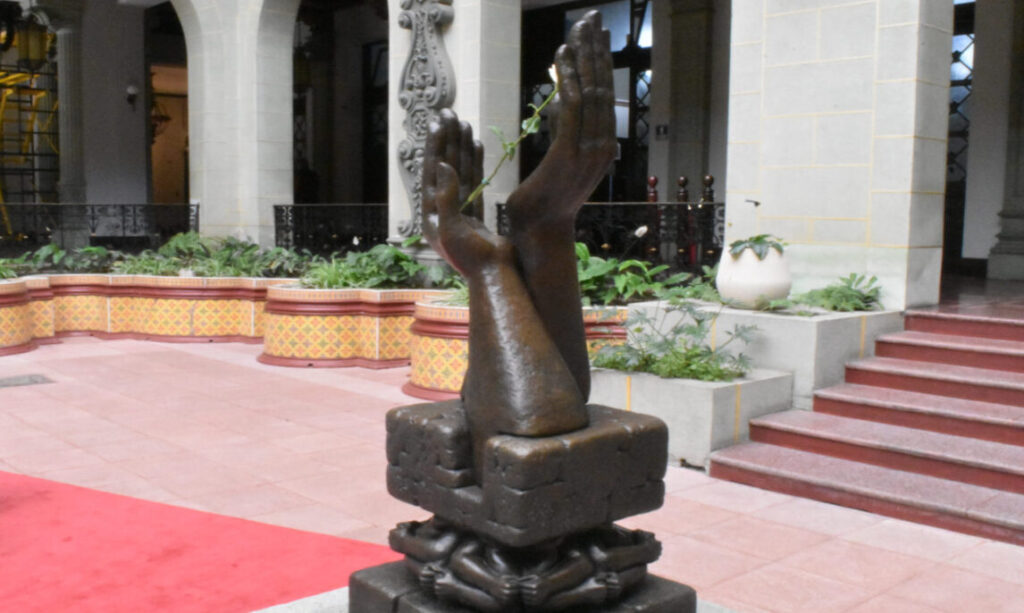Guatemala City, by Karla Gutiérrez -AGN- As part of safeguarding the country’s 3,000 years of culture, the Government of Guatemala is taking action to protect monuments and iconic sites throughout the territory.
Different institutions are involved in these tasks, developing strategies that include communities, international cooperators, academia, and civil organizations.
The Ministry of Culture and Sports -MCD- is responsible for archaeological sites visited by many national and foreign tourists who seek to learn more about Guatemala’s history, especially the Mayan civilization.
Some internationally recognized sites in Petén include Tikal, Yaxhá, and Uaxactún. Additionally, there are other destinations in different departments, including:
- Tak’alik’ Ab’aj in Retalhuleu
- Zaculeu in Huehuetenango
- Q’um’arkaj in Quiché
- Mixco Viejo and Iximché in Chimaltenango
- Kaminaljuyú in Guatemala City
- Chocolá in Suchitepéquez
- Quiriguá in Izabal
The General Directorate of Cultural and Natural Heritage of the MCD is in charge of these sites. It has general compliance guidance for its safeguarding, which includes mechanisms for statistical control and security mechanisms, among other aspects.
Architectural Monuments
Architectural monuments are part of the cultural heritage of Guatemalans, and the ministry carries out actions for their care and preservation, coordinating with local authorities on restoration and maintenance projects.
Locals and foreigners visit different places in Antigua Guatemala and Sacatepéquez due to their beauty and impressive details. These include the monument to the Apostle Santiago, the Santa Catalina Arch, Unión Tank, and the Captain General Palace.
Guatemala City also has many monuments, and one of the most famous is dedicated to peace, which is located in the National Palace of Culture.

Reformador Tower, the Flower Clock, and the sculpture in the Spirit of Winning Square are other prominent monuments in the capital city, in addition to those dedicated to prominent figures in various fields, such as:
- Miguel Ángel Asturias
- Dolores Bedoya
- Juan Pablo II
- Efraín Recinos
- Santo Hermano Pedro de San José de Bethancourt
- Tecún Uman
- Mayan ball game player
Other monuments commemorate and recognize the role of different sectors in the country’s development. Some are dedicated to the figure of the mother, National Civil Police agents, work, independence heroes, and indigenous people.
Other departments have famous monuments like the Marimba and Migrant Monument in Quetzaltenango.
Natural Richness
In addition to sculptures and architectural works that showcase its cultural richness, Guatemala has natural monuments that are part of its heritage and legacy for future generations.
One of the most recognized is Semuc Champey, located in the Chamá mountain range in Lanquin, Alta Verapaz.
The site consists of a natural stone bridge that is 300 meters long, with pools of different sizes formed by crystal-clear waters from springs.
Tourists from different parts of the country and other nations constantly visit the place, which allows for close encounters with flora and fauna.
The National Council of Protected Areas -Conap- is responsible for safeguarding and conservation, coordinating with community leaders and local government. The Yaxhá-Nakum-Naranjo Natural Monument, located within the Maya Biosphere Reserve in Petén, is on the list of natural monuments.
Commemoration
On International Day for Monuments and Sites, the Government of Guatemala reaffirms its commitment to protecting places that showcase Guatemala’s cultural and natural richness.
This commemoration is celebrated on April 18th to raise awareness among the population about the importance of preserving historical heritage.


